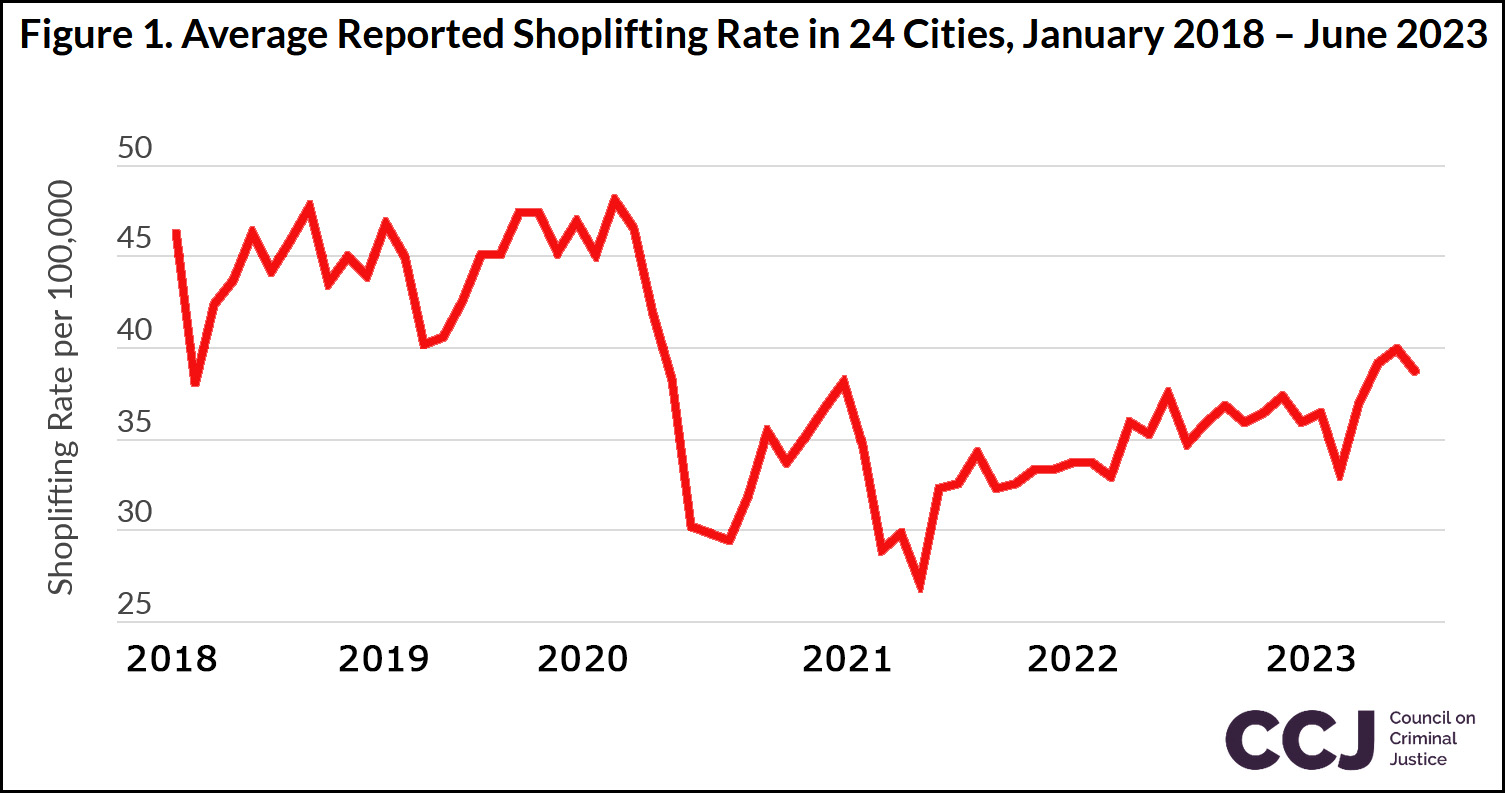Last month I showed some data suggesting that, sensational media reports notwithstanding, the rate of shoplifting hadn't changed much recently. Today I came across a new analysis from the Council on Criminal Justice that reports shoplifting rates from 24 big cities across the country. Here it is:
 There has been a smallish spike in shoplifting this year, from around 35 incidents per 100,000 people up to 40. However, that's a minor blip in a long-term trend of lower shoplifting rates apparently spurred by the pandemic.
There has been a smallish spike in shoplifting this year, from around 35 incidents per 100,000 people up to 40. However, that's a minor blip in a long-term trend of lower shoplifting rates apparently spurred by the pandemic.
Generally speaking, shoplifting hit a low point in 2021 and has been slowly increasing since then, but it's still well below the rates of four years ago. Since 2019, shoplifting has increased in seven cities, including New York and Los Angeles, and is down in 17 cities, including San Francisco and Chicago. Adjusted for inflation, the average value of goods stolen has increased from $90 to $100. The share of shoplifting incidents classified as felonies doubled from 8% to 16%.
POSTSCRIPT: Obviously not all shoplifting is reported, so the raw numbers in the chart are probably low. However, there's no reason to think the reporting rate has changed much, so the chart still gives a good indication of how much shoplifting has changed over the past five years.








